Let me ask you a question: How many times have you looked at your phone today? You most likely don’t know, but you wouldn’t be too proud of the number either if you knew the truth. Even though we think we’re not addicted to our phones, we glance at the screens on average 80 times per day, which amounts to once every 12 minutes, or almost 30,000 times per year.
Whether it’s fear of missing out, checking out Instagram stories, or work emails, we use our phones as the last thing we do before we fall asleep and the first thing we do when we wake up — many of us checking our phones even during sleep.
And it’s not just about checking messages or scrolling social media. The constant switching between apps, notifications, and digital distractions puts our brains in a state of perpetual overstimulation. This not only fragments our attention but also makes it harder to focus on deep work, leading to increased stress and cognitive fatigue.
Phone addiction is real, but it’s not unbeatable. Here are the reasons why checking your phone is harmful to your productivity and health, and what you can do to stop glancing at your phone so many times during the day.
Why is checking your phone all that bad?
You probably know yourself that looking at your phone screen all the time isn’t such a great idea, and there are a multitude of reasons why. Let’s start with the most striking one: depending on when they were born, the average person will spend a staggering five years and four months of their life on social media. That number doesn’t account for other phone use, such as calls, messaging, or work. Compare this with one year and one month of our total lives spent on socializing or one year and four months on exercise — not a good outlook.
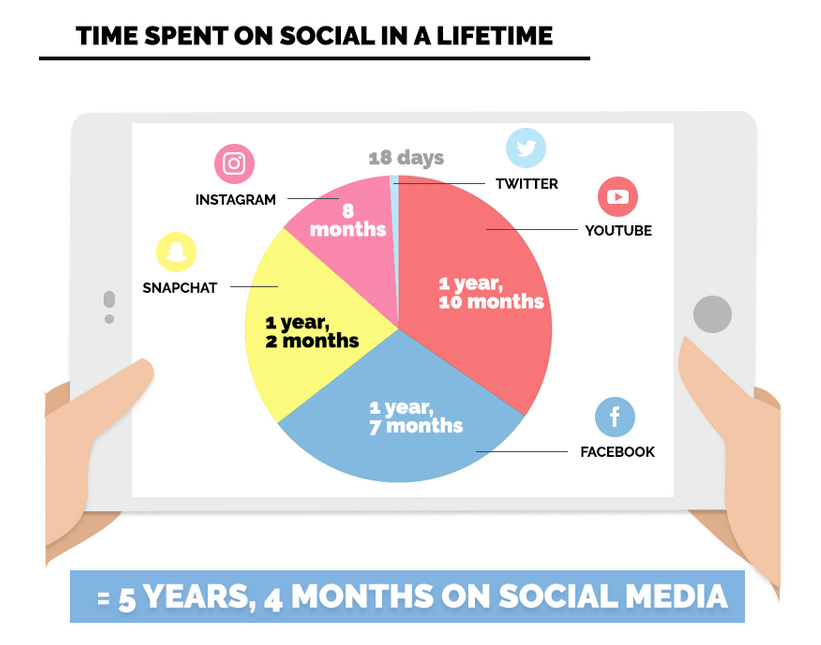
And the scariest part? Much of this screen time isn’t even intentional. Studies show that people often pick up their phones without realizing it — sometimes out of sheer habit rather than necessity. This mindless scrolling, even for just a few minutes at a time, adds up to hours lost every week.
Second, clinging on to our phones can bring a range of health problems, such as tension, restlessness, eye strain, neck issues, depression, sleep problems, anxiety and many, many others.
Finally, it’s been scientifically proven that cell phone use takes a major toll on productivity, especially for those who depend on phones to get their jobs done. Most interestingly, the same research shows that your phone doesn’t even have to be turned on to distract you — it’s enough to be present in the same room.
Even worse, excessive phone use impacts memory and learning. Constant interruptions make it harder for the brain to retain information, affecting both short-term recall and long-term knowledge retention. This can be especially problematic for professionals and students who need to focus on deep work.
Here are some tried-and-true methods on how to reduce your phone time, so you can be healthier, more productive, and have more time to do the things you enjoy.
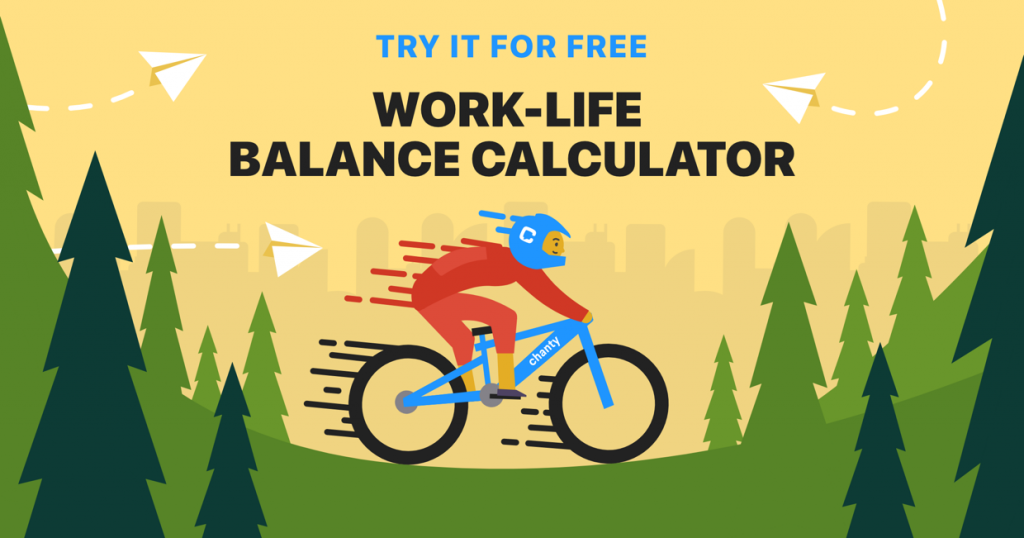
Keep your phone physically away
As mentioned above, your phone will be a hazard to your productivity, no matter if your notifications are turned off or the whole device is switched off. If you don’t need your phone for work or any urgent tasks, keep it at the other end of the room or in a separate room. Out of sight, out of mind, and you can get on with your work without interruptions.
For an even greater impact, set specific “phone-free zones” in your home or workplace. For example, keep your dining table a screen-free space to encourage conversation, or establish a rule that your phone stays in a different room when you’re working on an important task. The key is to create small habits that minimize the temptation of picking up your phone unnecessarily.
Track your phone use
The first step toward determining how much time you spend on your phone is to analyze it using numbers. You can do this via your phone’s operating system, which will provide you with basic information about how much time and battery was spent on each app on your phone.
For a more detailed observation, you can install an app such as Moment, which lets you see the apps you’ve used, how much time was spent on each, as well as how many times you’ve picked up your phone and glanced at it during the day.
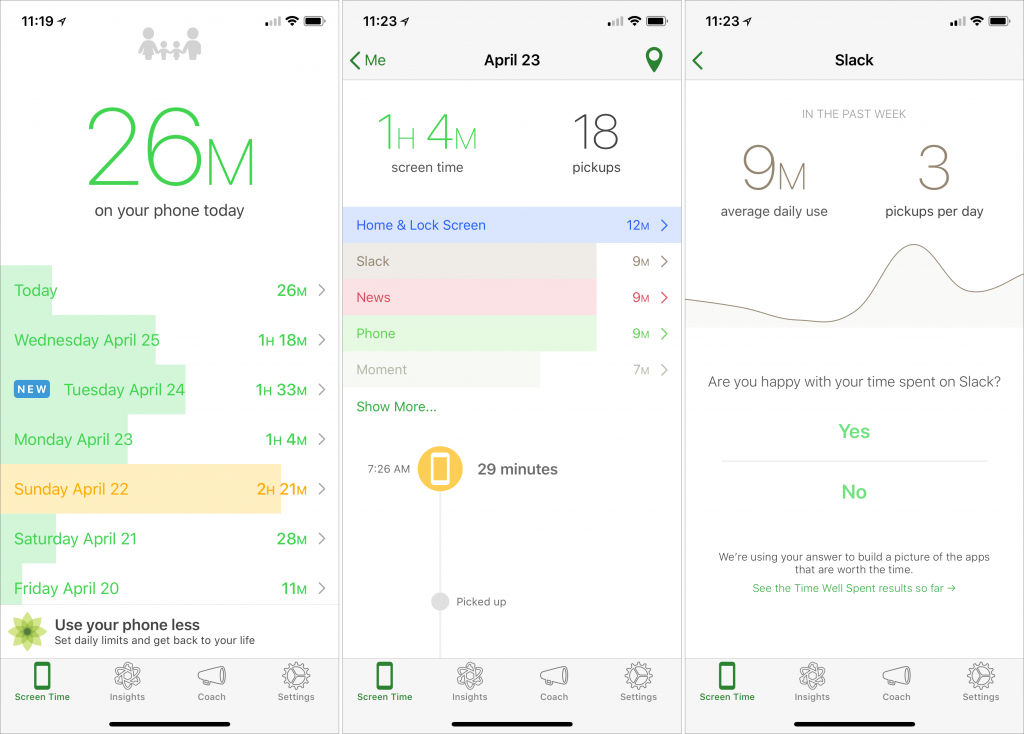
Another great approach is setting daily screen time limits. Many smartphones now have built-in features that allow you to set time restrictions on specific apps. If you find yourself wasting hours on social media or gaming apps, setting a hard limit can help curb the habit.
By analyzing your phone use patterns, you will be able to accomplish two things. First, you’ll find out you probably spend a lot more time on the phone than you anticipated, and second, you’ll find behavior patterns. If an app or process is taking too much time from your day without being productive, it’s time to decrease its use.
Do something else instead
It probably sounds too simple, but this is one of the most efficient ways to hinder your cell phone use. Instead of eliminating the habit, just replace it with something else. After all, we check our phones the majority of the time when we’re waiting for something: in line at the store, for our food to arrive, for the green light to turn on, for a meeting or a class to begin.
Instead of browsing your Facebook timeline, do something else. Pick up a book to read, grab the report you haven’t finished, and start a conversation with a friend or colleague. That way, you won’t drop the habit, but replace it with something else that will fill your day with more quality time and productivity.
Even small swaps can make a huge difference. Try carrying a notebook instead of your phone to jot down ideas or reminders. If you’re waiting in line, practice mindfulness or deep breathing instead of reaching for your screen. Over time, these small changes become new habits that gradually reduce your screen dependency.
Turn off your push notifications
If you don’t want to completely turn off sounds and notifications for all your apps, you can do the next best thing. Push notifications are those that show up at the top of your screen no matter what you’re doing on your phone at the moment. While they are undoubtedly useful, you probably don’t need a reminder that someone liked your elevator selfie on Instagram as you’re browsing your daily work email.
You can control your push notifications within your phone’s preferences or within individual apps. You can disable all push notifications or just the ones you find most important.
For an extra step, schedule “notification-free” periods throughout the day. Many phones now have “Focus Mode” or “Do Not Disturb” settings that block notifications for a set time. Try enabling these features when working, exercising, or spending time with family to reduce distractions.
Clean up your home screen
Humans are creatures of habit. In fact, research says that anywhere from 40 to 95% of our behavior comprises habits, which means that for about a half of our lives, we’re running on autopilot, which includes our phone use. Luckily, you can use this knowledge to your advantage.
Although a bit dated (from 2013), this study done by LG shows some disheartening data.
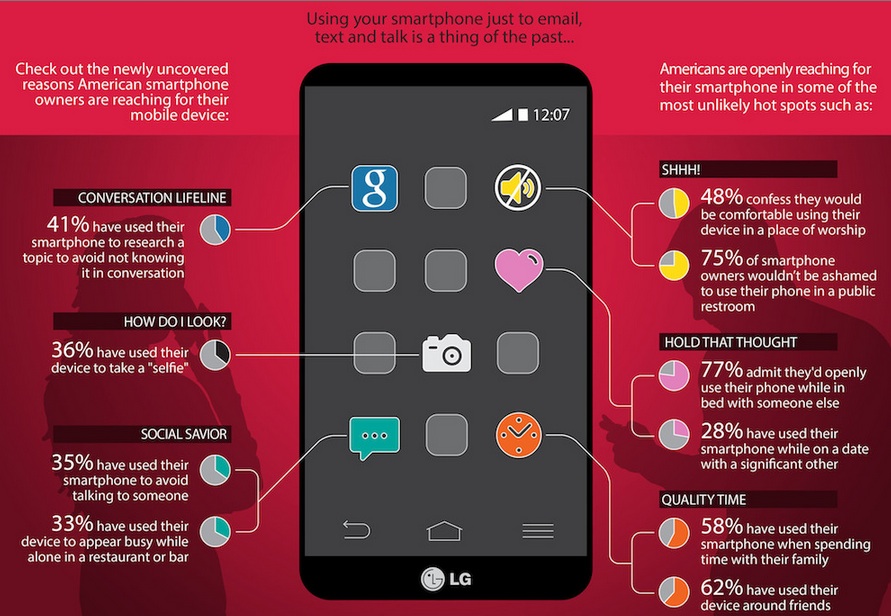
First, juggle your phone icons. If your thumb is used to finding Snapchat in the same lower-right corner every time, it will instinctively go there every time you unlock your phone. More importantly, make your home screen go blank. If your most-used apps are right there as the screen is unlocked, the apps are less than a second away and you’ll start them even if you don’t intend on using them. On the other hand, if you put the Twitter app on the third page of your apps, you’ll have to tap and scroll a few times to intentionally open it. While it may appear insignificant, it can significantly reduce your time spent on the phone over time.
Kick your phone out of the bed
As we’ve mentioned, many people check their phones even during their sleep, whether they’re awakened by a notification or not. Needless to say, this habit is anything but good, since it’s been scientifically proven that cell phone and tablet use in bed negatively affects the length and quality of sleep. In fact, research has found that people who use phones before bed knowingly go to sleep later, realizing they have just a few hours of shuteye ahead of them.
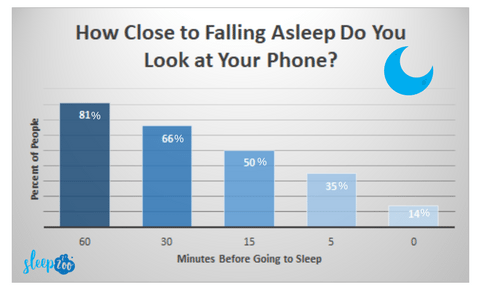
eachnight.com
Start by putting your phone away from the bed and not using it right before you go to sleep. Turn your phone on silent and let it charge a few feet away or in a different room. Since you’ll probably need something to wake you up, get an actual alarm clock instead of using the app on your phone.
And if you’re struggling with the temptation to check your phone before bed, try using a nighttime routine to replace screen time. Read a book, listen to calming music, or practice meditation — anything that helps your brain wind down without the harsh blue light from screens interfering with melatonin production.
Conclusion
Although reducing the time spent with your phone may seem impossible, with a number of small changes to your everyday routine, you’ll be able to cut down on your phone use, increase your productivity, improve your health and have more time to do the things you really love.
Do you know how much time you spend on your phone every day? Have you found a way to cut down on your screen time? Do let us know in the comments; we’d love to hear your input!



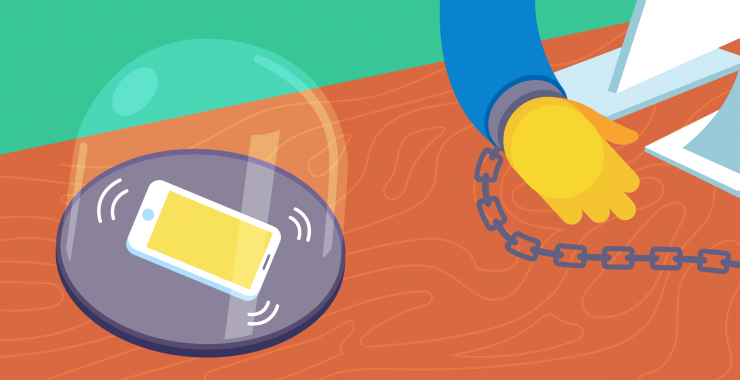


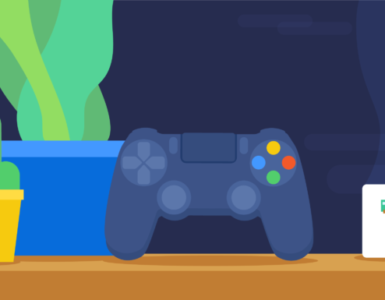



Add comment